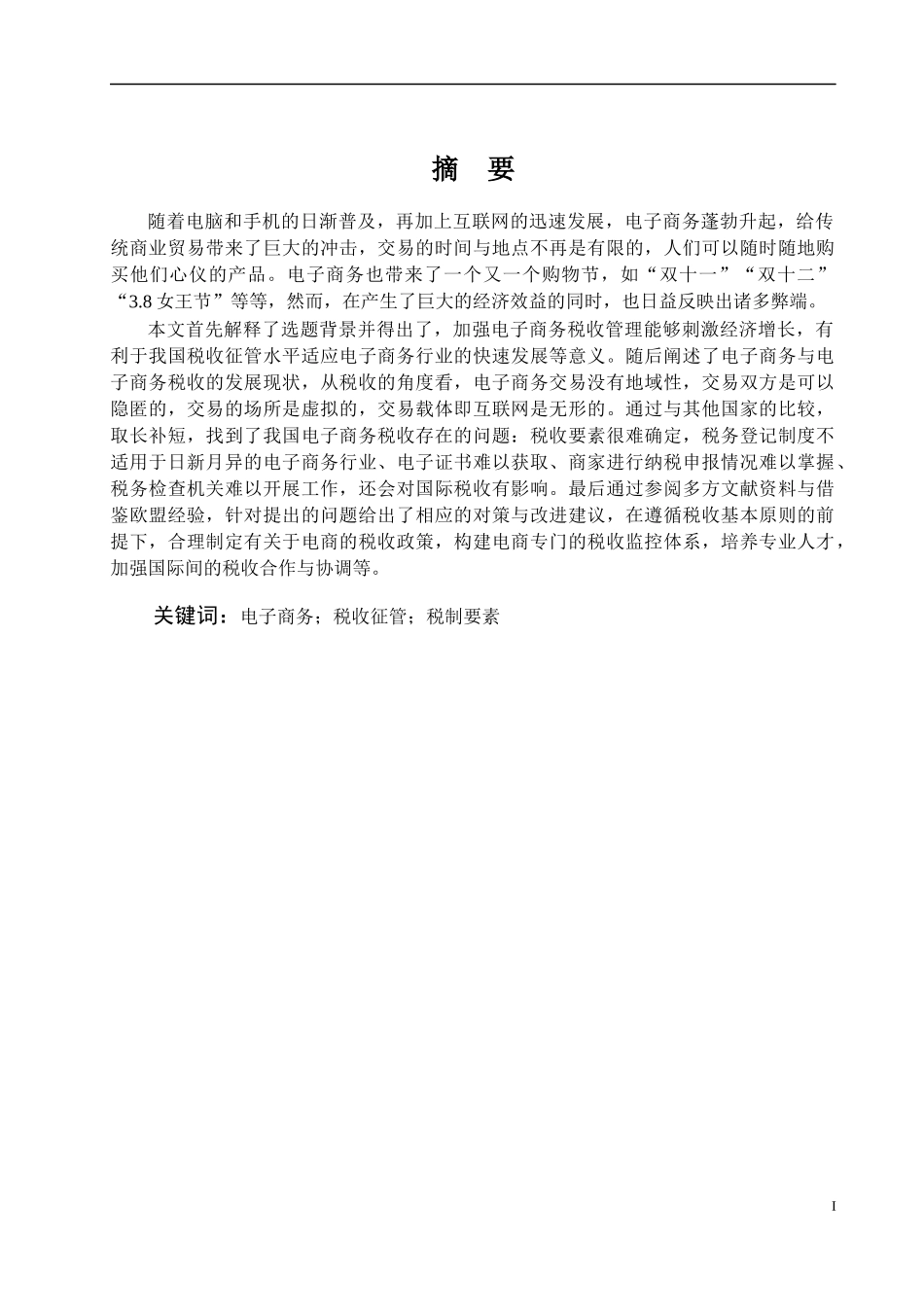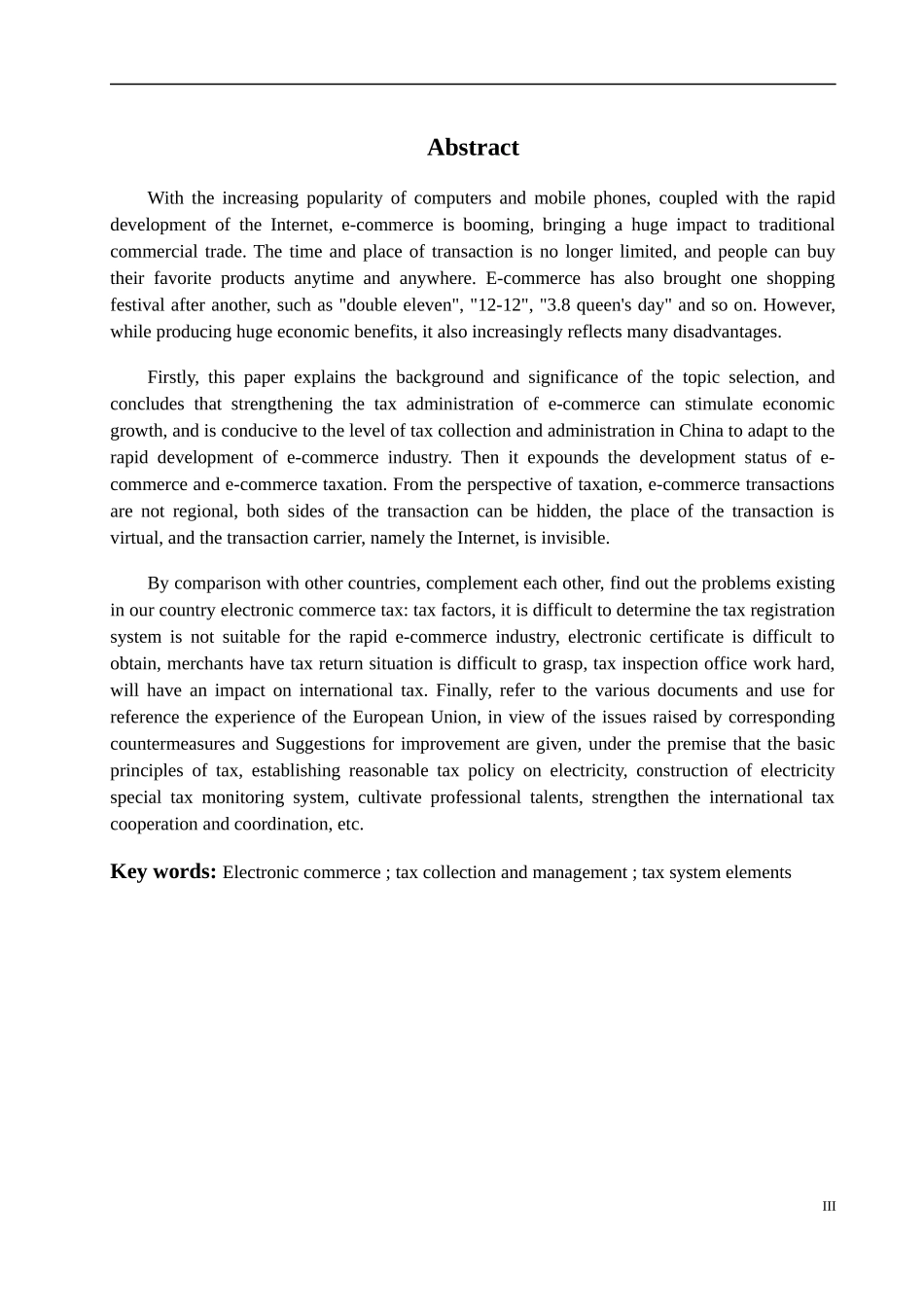摘 要随着电脑和手机的日渐普及,再加上互联网的迅速发展,电子商务蓬勃升起,给传统商业贸易带来了巨大的冲击,交易的时间与地点不再是有限的,人们可以随时随地购买他们心仪的产品。电子商务也带来了一个又一个购物节,如“双十一”“双十二”“3.8 女王节”等等,然而,在产生了巨大的经济效益的同时,也日益反映出诸多弊端。本文首先解释了选题背景并得出了,加强电子商务税收管理能够刺激经济增长,有利于我国税收征管水平适应电子商务行业的快速发展等意义。随后阐述了电子商务与电子商务税收的发展现状,从税收的角度看,电子商务交易没有地域性,交易双方是可以隐匿的,交易的场所是虚拟的,交易载体即互联网是无形的。通过与其他国家的比较,取长补短,找到了我国电子商务税收存在的问题:税收要素很难确定,税务登记制度不适用于日新月异的电子商务行业、电子证书难以获取、商家进行纳税申报情况难以掌握、税务检查机关难以开展工作,还会对国际税收有影响。最后通过参阅多方文献资料与借鉴欧盟经验,针对提出的问题给出了相应的对策与改进建议,在遵循税收基本原则的前提下,合理制定有关于电商的税收政策,构建电商专门的税收监控体系,培养专业人才,加强国际间的税收合作与协调等。关键词:电子商务;税收征管;税制要素IIIAbstractWith the increasing popularity of computers and mobile phones, coupled with the rapid development of the Internet, e-commerce is booming, bringing a huge impact to traditional commercial trade. The time and place of transaction is no longer limited, and people can buy their favorite products anytime and anywhere. E-commerce has also brought one shopping festival after another, such as "double eleven", "12-12", "3.8 queen's day" and so on. However, while producing huge economic benefits, it also increasingly reflects many disadvantages.Firstly, this paper explains the background and significance of the topic selection, and concludes that strengthening the tax administration of e-commerce can stimulate economic growth, and is conducive to the level of tax collection and administration in China to adapt...












